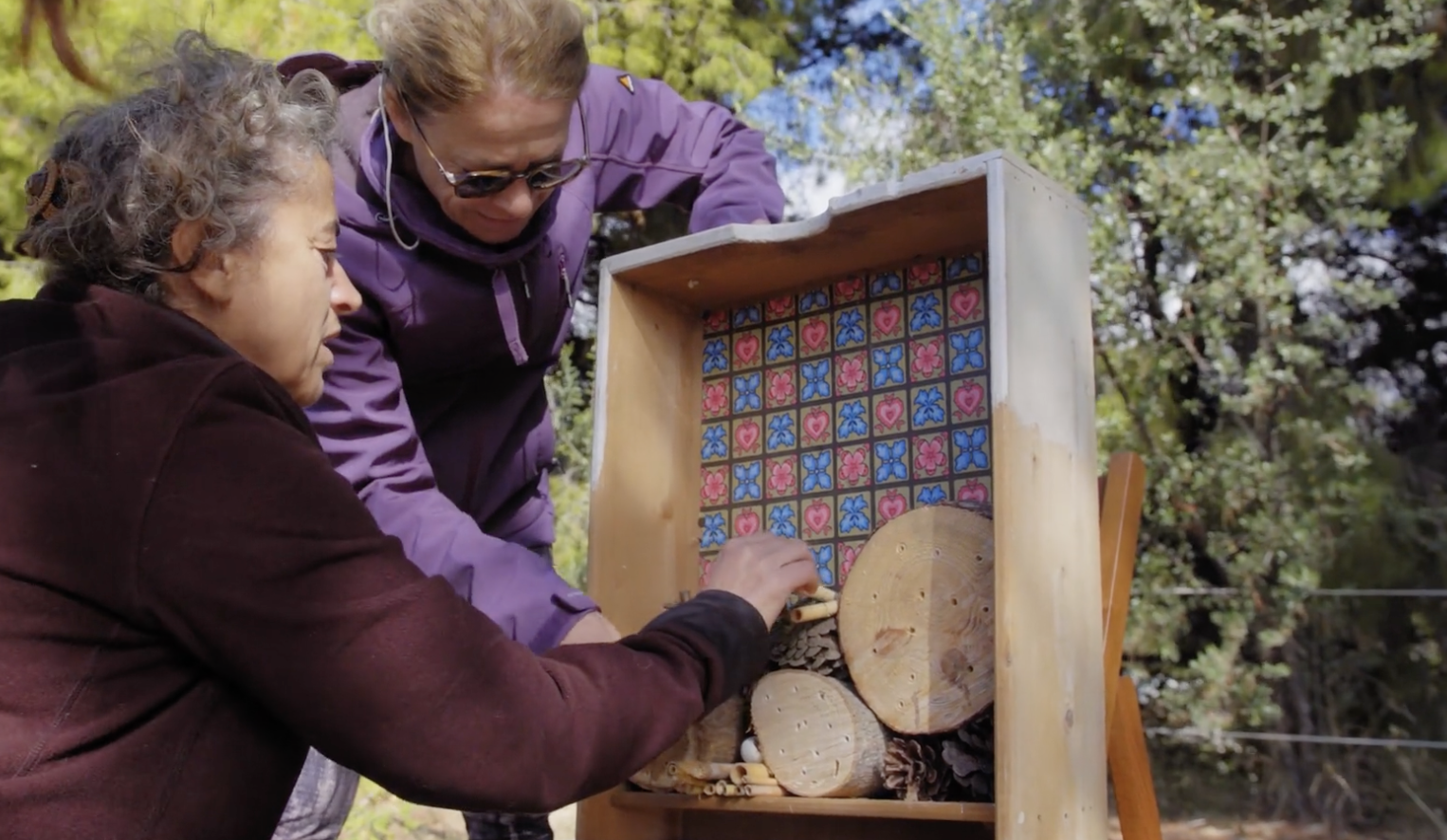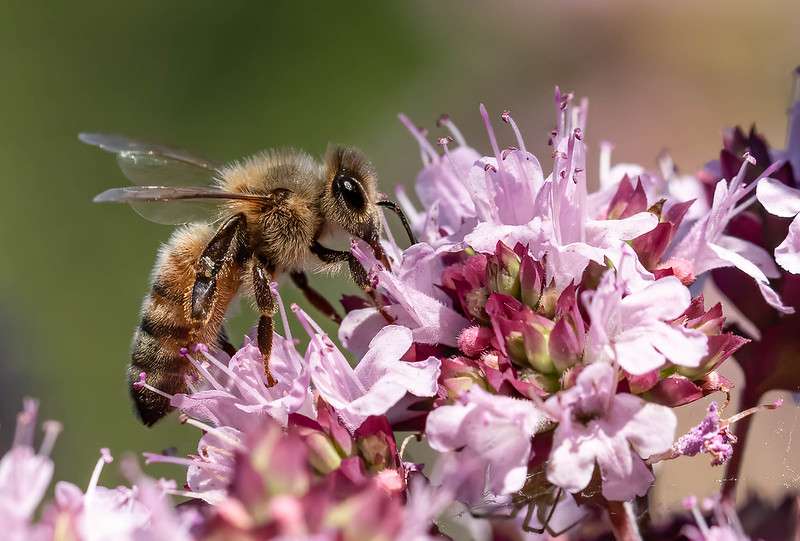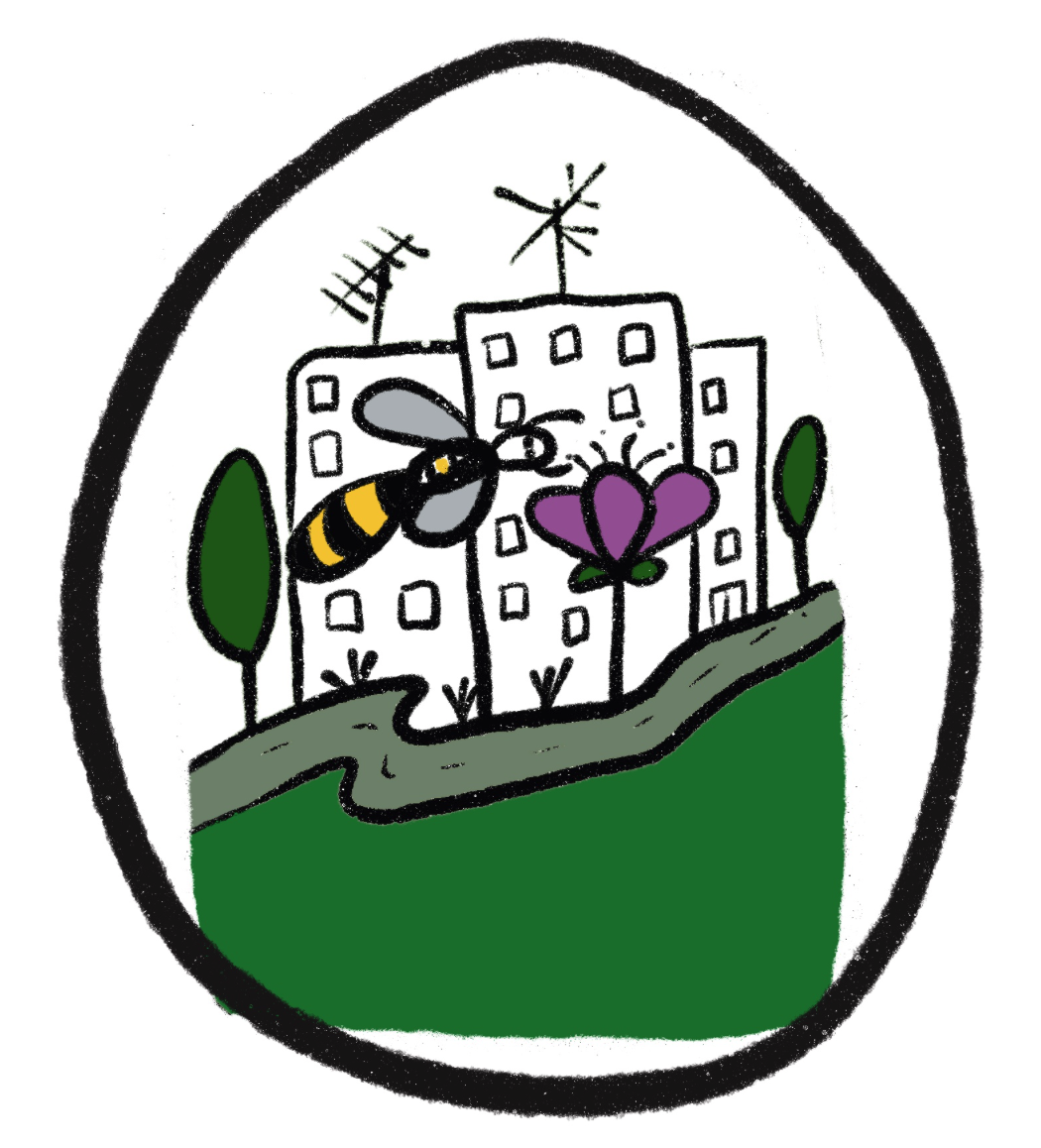Project Description:
The project has three main pillars with complementing sub activities: The first is the main CS event activities (“BioBlitzes”) that will take place in public areas of the city. Citizens will be using their phone’s camera to take pictures of the pollinators and urban flora they encounter and upload these pictures on projects on iNaturalist. The second is analyzing the data collected and information dissemination. We aim to determine the current biodiversity level and populations of pollinators in the examined areas and which plants provide significant sources of food for them. We aim to engage the motivated participants of BioBlitzes in this process and create attractive storytelling to channel our findings. We will be lab-testing urban hive products to identify popular food sources for pollinators. The third pillar is education. We will be introducing participants to honeybees (Apis mellifera) and other pollinators’ lifecycles. We will be visiting hives and building insect hotels with our participants.
Project Type: Kick Starter
Theme: Cities for Life, Biodiversity
Mentor: Jacqueline Goldin
Learning about the urban flora and pollinators that are around the city of Athens
The Pollinating Athens Project consists of the team members; Nikos Chatzilias and Maria Tzannetou. The main subject of our work is to raise awareness about pollination and insect pollinators. The area where our events took place is Athens, and more precisely some urban parks and schools in different areas of the city.
The last decades have seen a decline in insect pollinator populations around the world. Urbanization, deforestation, changes in land use, and intensive agriculture are some reasons for the dramatic habitat loss that pollinators are facing, with also the threat of careless use of pesticides and herbicides in farming, and thoughtless introduction of invasive species. The IUCN European Red List reveals that the populations of 37% of bee species and 31% of butterfly species are declining and that 9% of wild bees are threatened with extinction. The most worrying aspect, however, is that the conservation status of most pollinators is not known, especially in the extremely diverse Mediterranean Region.

Urban areas don’t attract that much of the interest of the scientific society, and because of the increasing number of townspeople, it seemed a great idea to implement a CSI project to monitor the urban pollinators and the flora that exist.
From June we start to search for candidate collaborators for our CSI project, focusing on local active groups that have a clear interest in nature. We co-organized events for the pollinators with a cooperative organic producer, a team of therapists for kids with disabilities, nature lovers citizens groups, many schools, a social NGO and an environmental citizens group.
We decided to use the worldwide known platform iNaturalist for our Bioblitz events in the parks, to help the participants become familiar with this amazing tool and to use it in their daily lives. Also, we visit schools in different regions of Athens to inform the students about pollination services and the insects that do it for us. We presented some native species and we focused on the ways that we can support them. Some of the schools were interested in installing insect hotels for their garden and with the help of the students we settled some.

For the construction materials of the insect hotels, we contacted the municipality and we arranged to use the trunks from the trees that they cut. Any other collaboration with the municipality was difficult because of the recent election that took place in October 2023, and the authorities were not official until the end of the year.
Thanks to IMPETUS we have been provided with all the basic information we needed to know about citizen science and how to build a project that has a meaningful impact. There was both introductory and continuing training during the program on the part of the organizing teams, which provided us with knowledge concerning both data collection and how to process them, how we approach the issue of equal participation of different stakeholder groups, how we maximize the impact of our actions, how we communicate our actions and the results of our surveys to the general public. The last and very important that we got from IMPETUS were the contacts with other CSI projects and the presentation of their experiences.
The plan is to continue the promotion during the following period and in springtime to start again the Bioblitz events, which is also the best period for monitoring the pollination. We have created a network of people that is willing to help us spread the information further and we have a list of schools that are happy to host us.




